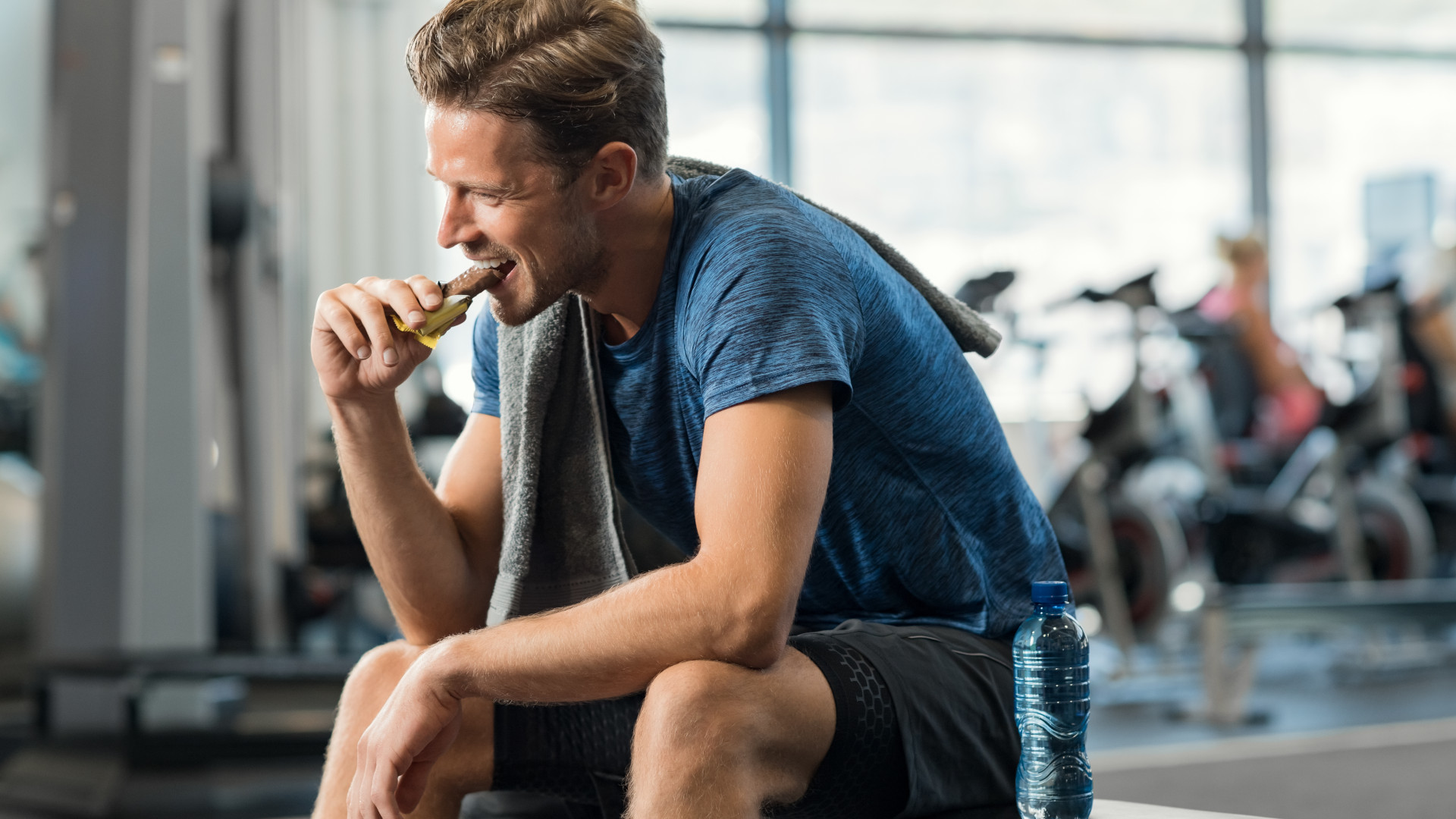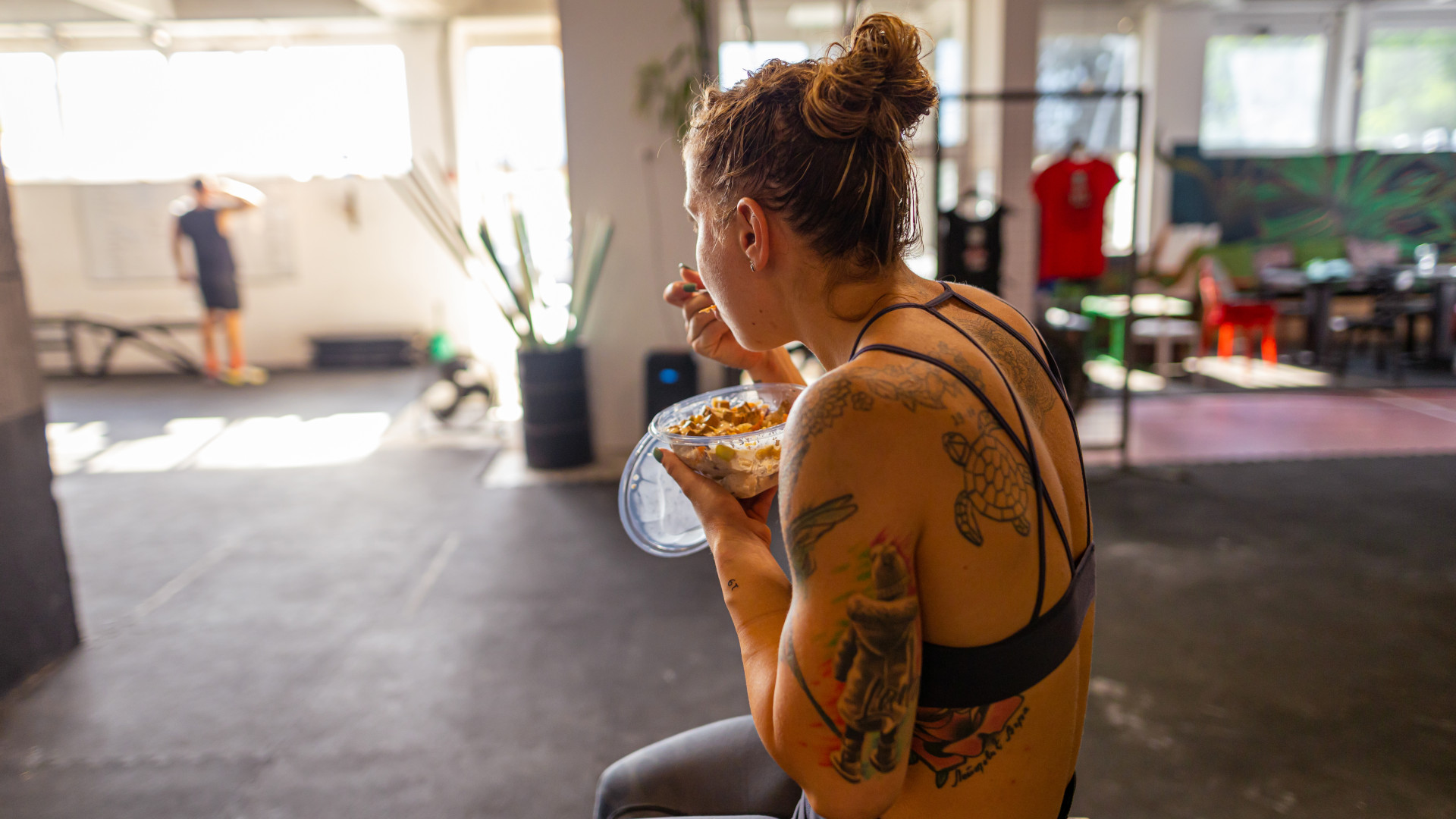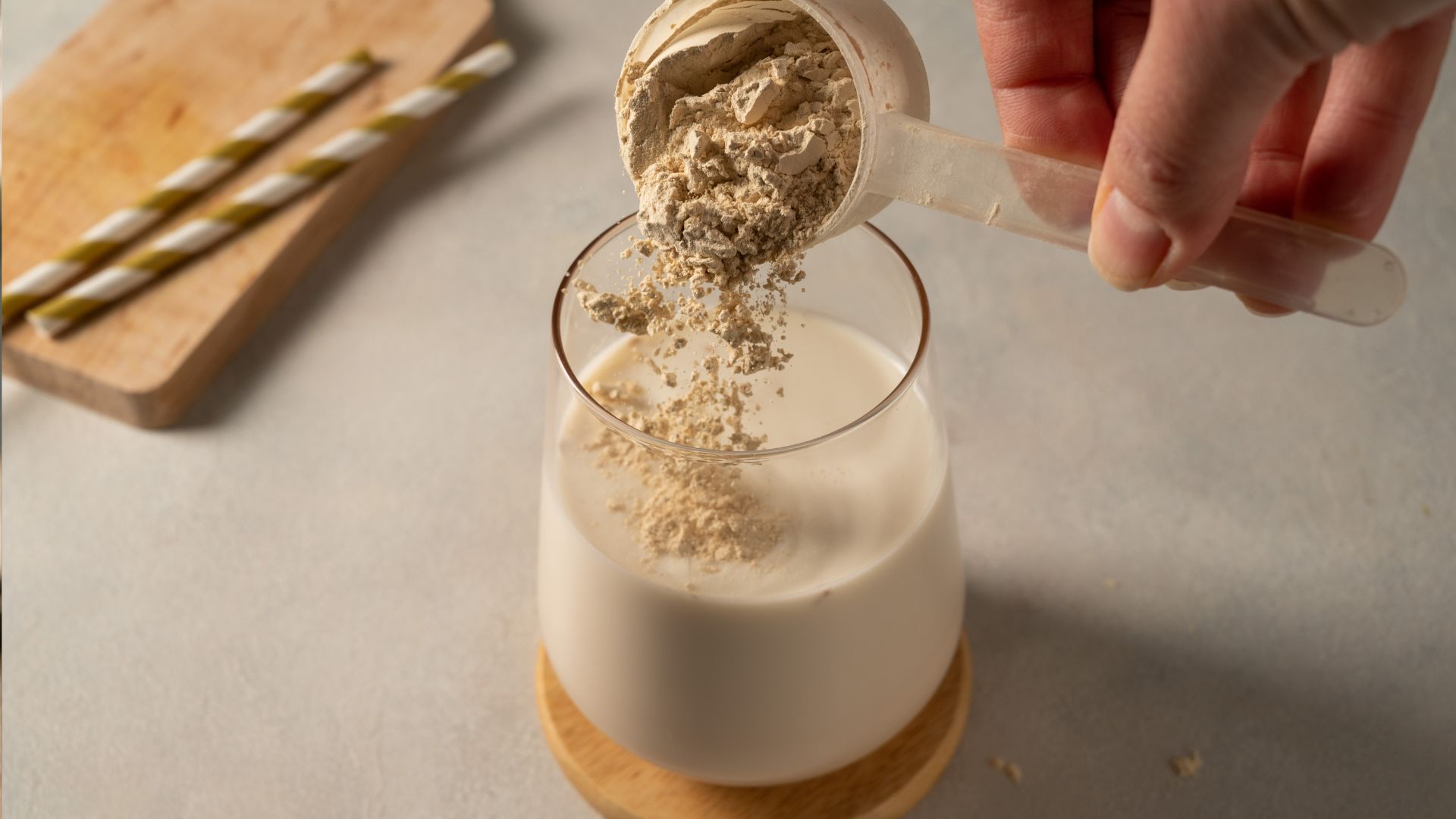Should you eat before or after a workout?
Both are important – an expert sheds some light


Whether you’re hitting the gym for a strength session, heading out for a run, or lifting dumbbells at home, the question of when to fuel your body is one that comes up time and again: should you eat before your workout or wait until afterward?
According to Hannah Belsham, Academy Health and Wellbeing Physiologist at Nuffield Health, the decision ultimately comes down to your goals, the type of exercise you’re doing and how your body responds. However, both are important.
“Eating beforehand helps give you energy, especially for moderate-to-high intensity workouts like running, cycling, or weight training,” she says. “Our muscles use carbohydrates for fuel, so having a snack or pre-workout meal beforehand can help you perform better and feel less fatigued.”
Research has also shown that consuming carbs before training can improve performance, especially in longer workouts.
“After exercise, the focus shifts to recovery, so eating a mix of protein and carbohydrates helps repair muscles and replenish energy stores.”
What to eat before a workout
Carbs are your best friend, as Belsham has already pointed out, it’s our body’s main fuel source. ‘But what about protein?’ A little won’t do any harm Belsham says, however, our body doesn’t use protein for fuel, so make carbs your priority. Avoid anything high in fat or fibre, as this takes longer for the body to digest.
In terms of what you should eat depends on when you’re planing on having your pre-workout meal, and vice versa. If it’s 30 to 60 minutes before training, then Belsham says a small snack – like a banana with peanut butter, yogurt with berries, or a slice of toast with avocado – are good choices. “They’re easy to digest and give quick energy.”
Get all the latest news, reviews, deals and buying guides on gorgeous tech, home and active products from the T3 experts
If you’re eating two to three hours before, then you can prioritise a larger meal – such as oatmeal with milk and fruit, chicken with rice and vegetables, or a small pasta dish with lean protein. “Slower-digesting foods give sustained energy for longer sessions,” she says. “Timing matters: bigger meals need more time to settle, while lighter snacks can be eaten closer to your workout.”
Also remember, if you’re eating close to your workout, opt for simple carbs that don’t take long to digest – like cereal, bananas, rice cakes, bagel, toast, dried fruit. If you’re eating a couple of hours before, opt for complex carbs that release energy slowly – like oats, wholegrain rice and pasta.

What should you eat after a workout?
As Belsham mentioned earlier, after your hard training session recovery is priority, which means you need to fuel your body with protein, but it also needs carbs again too. “Eating protein helps repair muscles, and carbohydrates help refill energy stores, especially after longer or more intense sessions.”
If you finish your training near lunch time or dinner, then you can make sure your meal contains a good makeup of these macronutrients. This could include things like eggs on wholegrain toast with mushrooms and spinach, or salmon with sweet potato and vegetables.
How soon should you be eating this after your workout? “Aim to eat a balanced meal within 1–2 hours after training. This helps your body recover properly and makes it easier to hit your daily nutrition targets,” says Belsham.
Oh, and if you’re worried about the ‘anabolic window’ – the optimal time after your workout to consume protein in order to build the most muscle – don’t be. While it was once believed this window was very small – around 30 to 60 minutes – research suggests it can last anywhere between four to six hours.
The bottom line

Eating before and after your training is important. When it comes to before training, the key thing to remember is when; how long do you have before you workout, because that will determine the type of food you’ll reach for. After, you want to nourish your body with protein and replenish those depleted glycogen stores.
However, it’s important to remember, everyone is different and our bodies will respond differently too. The best thing you can do is therefore find what works best for you and your body. Same with the foods we’ve suggested. It can take a little trial and error, and, if you really find that you’re struggling, you can always reach out to a registered nutritionist.

Bryony’s T3’s official ‘gym-bunny’ and Active Staff Writer, covering all things fitness. She is a certified personal trainer and also a part-time fitness instructor. In her spare time, you will find her in her natural habitat - the gym - where her style of training is a hybrid of bodybuilding and powerlifting. Bryony loves writing about accessible workouts, nutrition and testing innovative fitness products that help you reach your fitness goals and take your training to the next level.
You must confirm your public display name before commenting
Please logout and then login again, you will then be prompted to enter your display name.